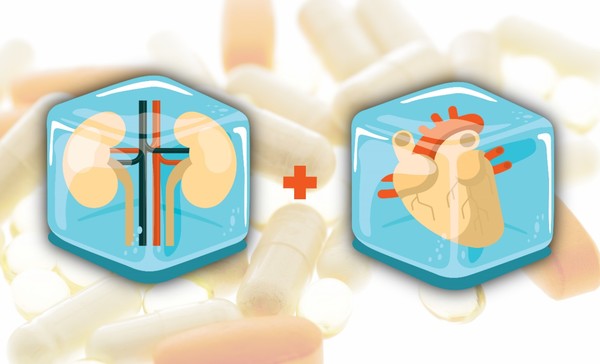As chronic kidney disease (CKD) patients are three times more likely to accompany a cardiovascular disease than the general population, doctors should consider a lipid-lowering statin class drug that can alleviate the kidney's burden, an expert said.
In celebration of World Kidney Day on March 11, professor Kim Hyo-sang of the Department of Nephrology at Asan Medical Center in Seoul emphasized managing cardiovascular diseases, a major complication of CKD.
The World Kidney Day steering committee declared 2021 the year of “Living Well with Kidney Disease,” stressing that it was important to manage the irreversible CKD in various ways so that patients do not experience deteriorating symptoms and lead a healthy daily life without the risk of complications.

It is particularly important to prevent cardiovascular diseases in chronic CKD patients because they could die if coronary artery disease or stroke occurs before the end-stage renal failure.
According to the KNOW-KIDNEY study by the Korea Disease Control and Prevention Agency (KCDA), 0.8 percent of patients with stage 1 renal disease in Korea had cardiovascular disease. The figure rose to 9.8 percent in patients with stage 4 renal disease. As the stage of renal disease progressed, the proportion of cardiovascular diseases increased, the study showed.
Physicians are increasingly paying attention to statin class drugs used to manage cardiovascular diseases in CKD patients.
The Kidney Disease Improving Global Outcomes (KDIGO) guidelines recommend statin treatment in all CKD patients aged 50 or more or those under 50 accompanying diabetes, or patients with a history of coronary artery disease or stroke, or patients with a risk of death or nonfatal myocardial infarction from coronary artery disease for the next 10 years exceeding 10 percent.
A 2016 Korean cohort study for outcomes in CKD patients (KNOW-CKD) showed that more than one out of two CKD patients in Korea used statin between 2011 and 2015.
“A study showed that local adults with CKD are about three times more likely to have cardiovascular disease than the general population,” Kim said. “If there is a concern for renal function when prescribing a statin for cardiovascular disease management, doctors should consider choosing a statin that can relieve the kidney burden.”
A meta-analysis of 57 randomized, controlled clinical trials of statins in 143,888 domestic patients excluding those on dialysis demonstrated that statins with different types and doses induced significant differences in estimated glomerular filtration rate (eGFR), a renal function indicator.
The Korean Society of Lipid & Atherosclerosis (KSoLA) recommends using statins that are mainly metabolized in the liver and less excreted to the kidneys when treating stage 3 or higher CKD.
Atorvastatin is one of the statins excreted to the liver, not to the kidney. Atorvastatin does not require dose adjusting because kidney disease does not affect the concentration of atorvastatin in the plasma or the effect of lowering LDL-C.
“As statin treatment is highly beneficial in renal disease patients at high risk for cardiovascular disease, patients should continue treatment through consultation with a doctor rather than stopping it arbitrarily due to kidney burden,” Kim said.

